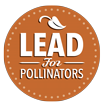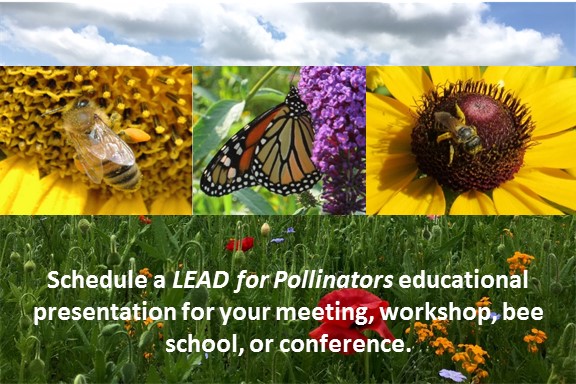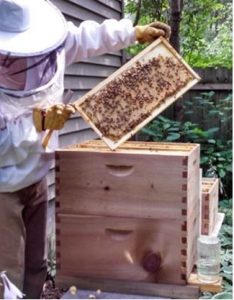A LEAD for Pollinators presentation is perfect for beekeepers, gardeners, school groups (ages 12 through college), community and environmental groups. Schedule us today for your next member meeting or educational event.
Scroll through our list of topics below.



